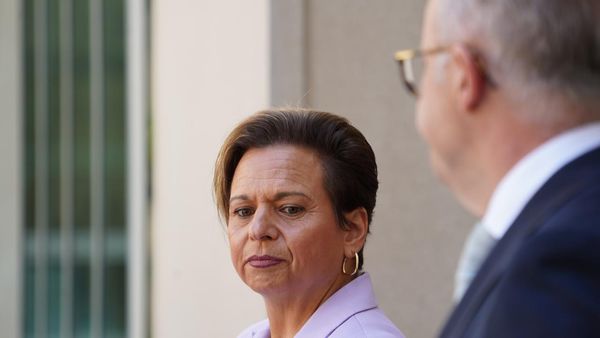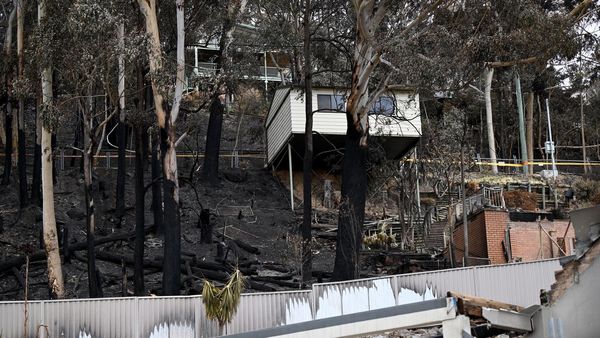
Prince Andrew held his shareholdings through a government-backed shell company that was created to conceal royal investments from public scrutiny.
The prince was among at least five members of the royal family who used the shell company Bank of England Nominees, which was set up in the 1970s to prevent the “embarrassing” public disclosure of Queen Elizabeth II’s investments.
The monarch successfully lobbied the government to alter a draft law in order to permit the Windsors to hide the size and value of their shareholdings from the public. The shell company operated for more than 30 years.
Cost of the crown is an investigation into royal wealth and finances. The series, published ahead of the coronation of King Charles III, is seeking to overcome centuries of secrecy to better understand how the royal family is funded, the extent to which individual members have profited from their public roles, and the dubious origins of some of their wealth. The Guardian believes it is in the public interest to clarify what can legitimately be called private wealth, what belongs to the British people, and what, as so often is the case, straddles the two.
The Guardian has established that the queen was not the only royal to use the facility. Her sister Princess Margaret, her husband Prince Philip, and her children Charles and Andrew also held shares via Bank of England Nominees.
Andrew’s use of the shell company, which has not previously been reported, is significant because he was a government “special trade envoy” at the same time. Through this role he would have had access to commercially sensitive information.
Transparency rules designed to expose potential conflicts of interest require government ministers and members of parliament to publicly declare any significant shares they own.
However, the royals are not subject to similar rules. There is no suggestion Andrew used commercial information improperly, but the concealment of his investments raises questions about government oversight of potential conflicts of interest.
In 1973, a proposed bill to make company shareholdings more transparent would have enabled public scrutiny of the queen’s finances. Archived documents revealed that the queen’s personal lawyer “took fright” at the proposal and warned the government that the monarch did not want the public to discover what shares she owned because that would be “embarrassing”.
The palace secretly lobbied the government to “find a way out” of the quandary. The solution involved a clause quietly introduced into the legislation that allowed the government to exempt specific companies from the requirement to declare the identities of certain categories of shareholders, such as heads of state, foreign governments and international organisations.
That, in turn, paved the way for Bank of England Nominees, the shell company set up in 1977. For more than three decades, the scheme prevented the public from being able to detect which of the shares owned by the shell company were held specifically on behalf of the British monarch or her family, as opposed to other heads of state or foreign government officials.
New documents obtained by the Guardian show the scheme was wound up in 2011 by the government after Whitehall officials described it as “anachronistic” and “difficult to defend”.
The Department for Business, Energy and Industrial Strategy disclosed the documents only after a two-year delay following the threat of legal action by the freedom of information watchdog, the information commissioner.
They show that between 2006 and 2010, the shell company was used by Andrew and the queen to hold their shares.
At the time, Andrew was the government’s trade envoy, tasked with promoting UK business interests abroad.
He stepped down in 2011 after a series of revelations about his close links with unsavoury businessmen, including the American billionaire Jeffrey Epstein, and foreign dictators.

His suitability for the post was questioned after it was disclosed that he had taken a holiday with a Libyan gun smuggler, criticised a Serious Fraud Office investigation into corruption involving the arms giant BAE, and lunched at Buckingham Palace with a leading member of the deposed Tunisian dictatorship.
Rose Whiffen, senior researcher for anti-corruption campaign group Transparency International, said of the Guardian’s revelation that Andrew used the shell company to mask his investments: “Trade envoys are privy to insider knowledge, which is why transparency is key to reveal potential conflicts of interest so that they may be properly addressed.”
A palace spokesperson said: “We would not comment on private investments of members of the royal family. They are managed by independent investment managers without the day-to-day involvement of members of the royal family.”
Charles and Prince Philip stopped using the shell company in 2007 and 2008 respectively. The Queen’s sister, Margaret, had also used the scheme, as did the financial specialists who managed her estate after her death in 2002.
The documents do not specify which shares were held by each of the royals, nor their value.
In 2011, Vince Cable, the then business secretary, scrapped the scheme. Before he did so, his officials advised him to call the queen’s most senior adviser.
An official wrote: “We understand that members of the royal family still have shareholdings in UK public companies and unless they and all those who have an interest in them are specifically exempted, these shareholdings would now need to be made public if the companies concerned asked for details of beneficial ownership.
“It is not clear whether advisers to the royal family are aware of the removal of the exemption, or understand the implications.”
It is not known how the royal family responded to the closure of the shell company to continue keeping secret their shareholdings. The spokesperson said that their private financial arrangements “remain private as they would for any other individual”.







